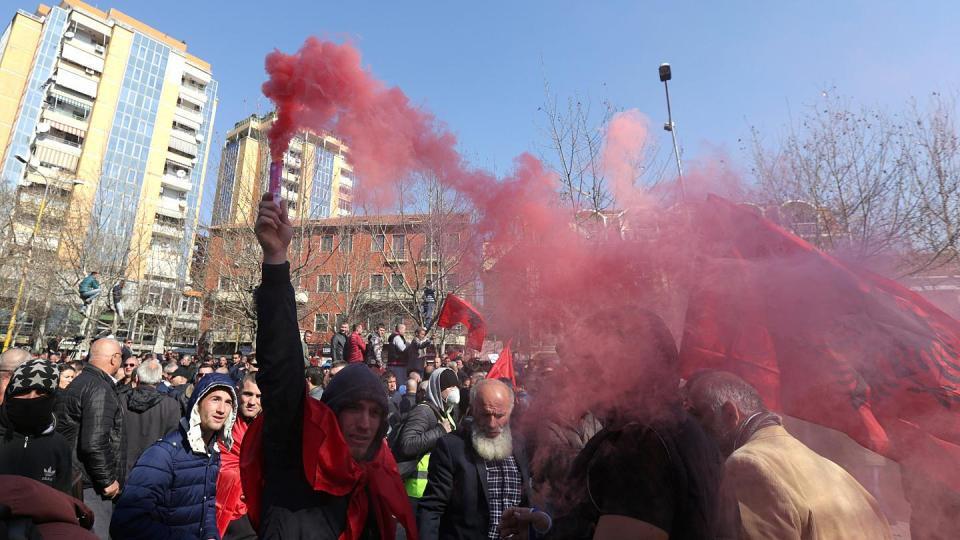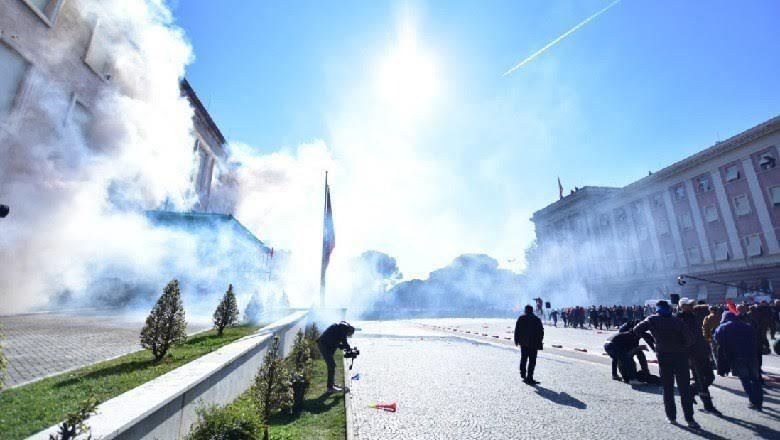Authored by Dr. Ana Scheer via Off-Guardian.org,
The Balkan Peninsula is known as the “gunpowder barrel” of the European continent. In Albania, this “gunpowder barrel” seems to explode quite often due to frequent political conflicts. For any foreign observer the continuous political crisis in this country seem absurd but for the Albanian people it is a harsh reality that effects them socially, economically as well as jeopardizes the European integration of the country in EU.
What is happening in Albania? Why the gunpowder barrel has exploded again? And why, Albanians are frightened that this political conflict might escalate into a civil conflict?
During the parliamentary elections of 2017, the three leading parties achieved these results:
-
Socialist Party of Albania – 764,791 votes – 48.34% – 74 seats
-
Democratic Party of Albania – 456,481 votes – 28.85% – 43 seats
-
Socialist Movement for Integration – 225,975 votes – 14.28% – 19 seats
The Socialist Party secured enough seats to rule as majority in government. But the election process was recently disputed by the Democratic Party and the Socialist Movement for Integration due to the exposure of investigating files 339 and 184 in which ministers, mayors and other key important figures of the Socialist Party were involved into collaborating with organized crime in order to intimidate the voters and manipulate the results.
As the local elections of June 30, 2019 were approaching, the opposition parties withdrew their mandates from parliament, i.e.: 60 out of 140 seats letting the majority (SP) to seat and rule alone in parliament. The two opposition parties, representing 43% of the voters are already out of parliament asking for the resignation of Albanian premier Edi Rama, whose prompt political maneuver did not involve resignation, nor talks, but replacement of the parliamentary seats with freelance candidates who rushed to cease such an opportunity, thus creating the new opposition designed by the premier himself.
Despite the addition of the new MP-s the Albanian Parliament is still not in its full capacity because there are many unoccupied seats, a fact that legally raises many constitutional questions.
In addition, in order to avoid the failure of the forthcoming local elections, Rama is encouraging and supporting, and even raising small parties, to register in the Electoral College. With such a maneuver, without the opposition, the SP will ensure the wining of every single municipality in the country. With the central and local government under total control, and a parliament under his rule, premier Rama might as well enjoy the attributes of an ancient monarchy.
Therefore, during the recent weeks thousands have rallied in the streets of Tirana, especially in front of the prime-ministry and parliament asking for the resignation of Edi Rama as the only solution of free and fair elections.
During the first mandate of the Edi Rama premiership Albania has received frequent negative reports from the State Department and several foreign institutions regarding the high level of corruption, organized crime, cultivation of cannabis and smuggling of heavy drugs. The world media has raised many alerts about the nation spread cultivation of cannabis. The state police has been allegedly involved in such activities and up to the present several district heads of police have fled the country, wanted by the authorities, and are still at large.
In 2016 an Italian and German report indicated that there were 363 cannabis areas spread throughout the country. This report was kept secret by the government and when exposed by the few independent media it was denied, however, the former Minister of Interior, Saimir Tahiri went under investigation accused of drugs trafficking and collaboration with organized crime. The financial income from the cannabis activity was estimated in 5 billion euros, half the country’s GDP. The opposition parties claimed that this money was used in ensuring victory in parliamentary elections as well as money laundry. It was this past bitter experience that forced the opposition parties undertaking the radical decision of boycotting the parliament and sabotaging the forthcoming local elections.
Albania seems to be heading toward a civil conflict. In June the European Commission is expected to refuse once again the opening of the negotiations for the Albanian membership in EU. This will be an added fuel to the present situation. The international institutions are observing patiently, awaiting the Albanian political storm to cease. A storm that seems to end only by the decision to step down of one man: the Albanian premier, Edi Rama.
via ZeroHedge News http://bit.ly/2WiIokZ Tyler Durden

